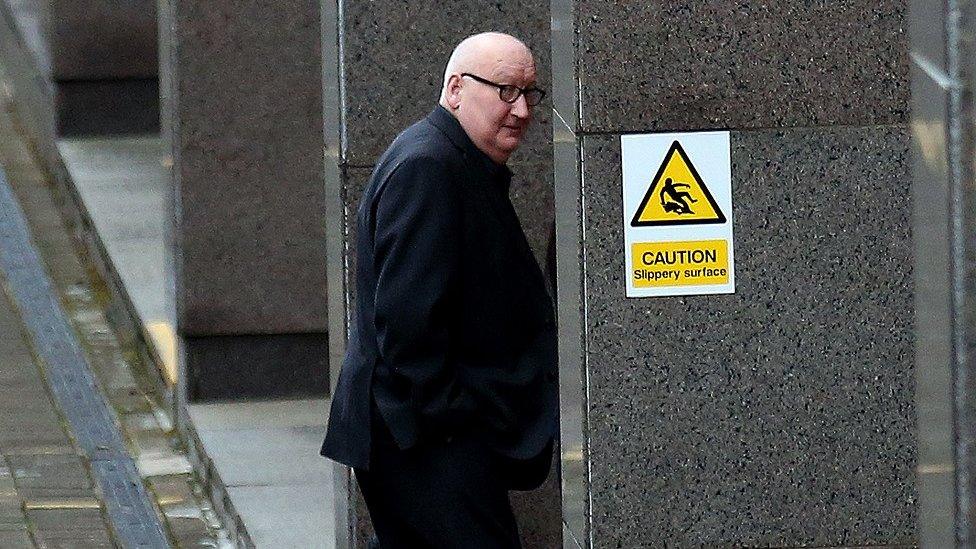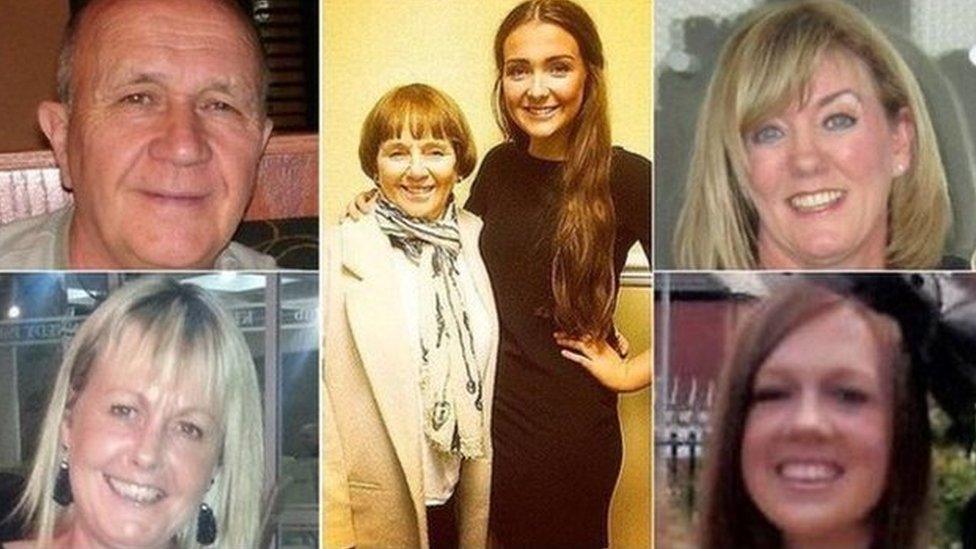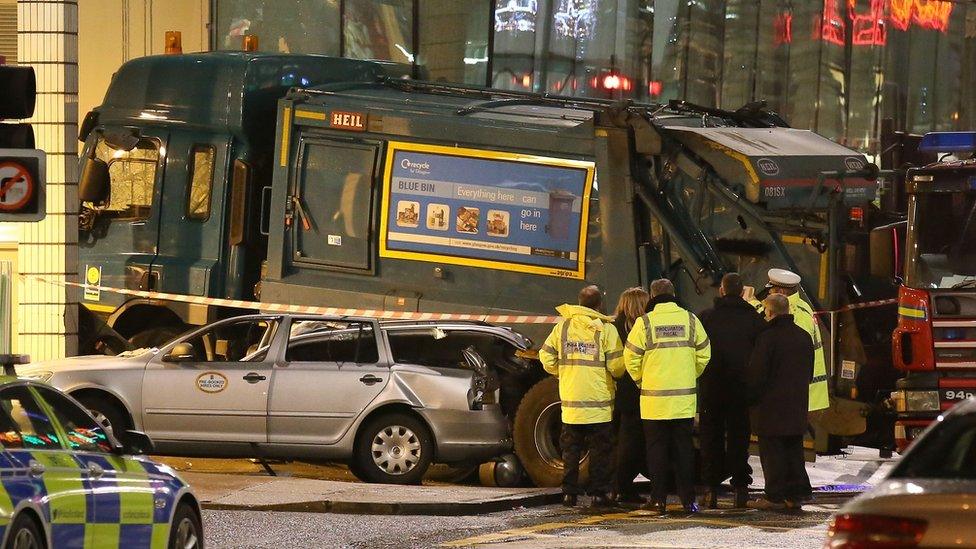Glasgow bin lorry crash: Judge criticises council over court hold-up
- Published

Harry Clarke was unconscious at the wheel when the bin lorry went out of control, killing six people
A judge has criticised Scotland's largest local authority after being forced to postpone a case involving Glasgow bin lorry driver Harry Clarke.
A four-day hearing was due to take place into whether a bus company acted negligently by failing to provide an accurate reference for Mr Clarke.
But it had to be stopped when Glasgow City Council tried to lodge a legal document at the last minute.
Six people died in December 2014 when a bin lorry driven by Mr Clarke crashed.
Judge Lord Ericht blamed the council for the latest hold-up and described its conduct as "extremely unsatisfactory".
He said: "It appears from what I have just heard that a council employee has been aware of the full spreadsheet since July.
"It is simply not acceptable not to prepare for a Court of Session proof properly on the basis of pressure of other work."
Health issues
Lord Ericht ordered Glasgow City Council to pay punitive legal costs to First Glasgow.
A further procedural hearing will now be heard at the court on 18 February.
Mr Clarke worked for First Bus before getting a job with Glasgow City Council.
No criminal prosecutions were ever brought following the fatal crash in Glasgow city centre.
The latest action has been brought by the council against First Glasgow (No.1) Ltd. It is seeking a total of £446,012 from the transport firm.
Lawyers for the council claim First Glasgow failed to disclose that Mr Clarke, who was 63 at the time, lost consciousness at the wheel of a bus in 2010.
Mr Clarke, from Glasgow, had a history of health issues dating back to the 1970s - including a previous blackout in 2010 when at the wheel of a stationary bus - but had not disclosed his medical background to his employers or the DVLA.
He was driving the refuse lorry which struck and caused the deaths of six people in the city centre on 22 December 2014 after he blacked out.
The lorry had travelled along the pavement in Queen Street before crashing into the side of the Millennium Hotel in George Square.

(Clockwise from top left) Jack Sweeney, Lorraine Sweeney, Erin McQuade, Jacqueline Morton, Stephenie Tait and Gillian Ewing were killed in the bin lorry crash
Erin McQuade, 18, and her grandparents Jack Sweeney, 68, and Lorraine Sweeney, 69, from Dumbarton; Stephenie Tait, 29, and Jacqueline Morton, 51, both from Glasgow; and Gillian Ewing, 52, from Edinburgh, all died in the incident.
Fifteen people were also injured.
Crown Office lawyers decided not to prosecute Mr Clarke on the basis that he had a medical condition and there was no evidence to show he broke the law.
The families of those who lost their lives after the incident tried to raise a private prosecution against him.
They argued that Clarke had made "misrepresentations" about his medical history to the DVLA and to his employers.
However, senior judges did not allow the prosecution to proceed.

The lorry mounted the kerb before coming to a stop at the Millennium Hotel